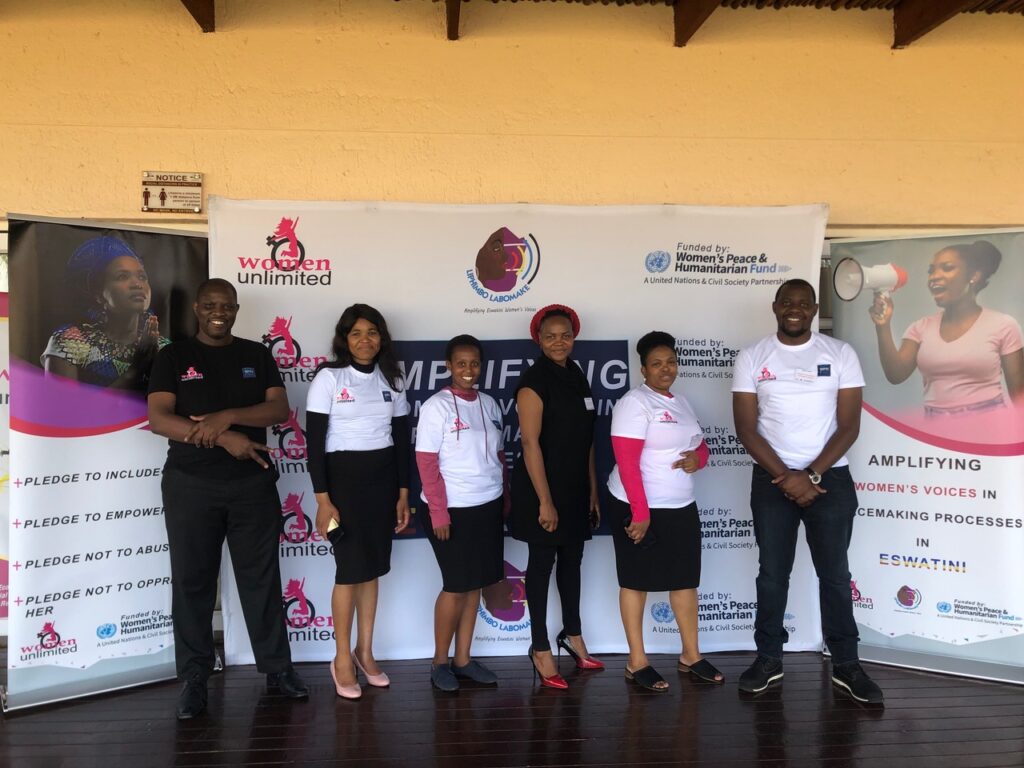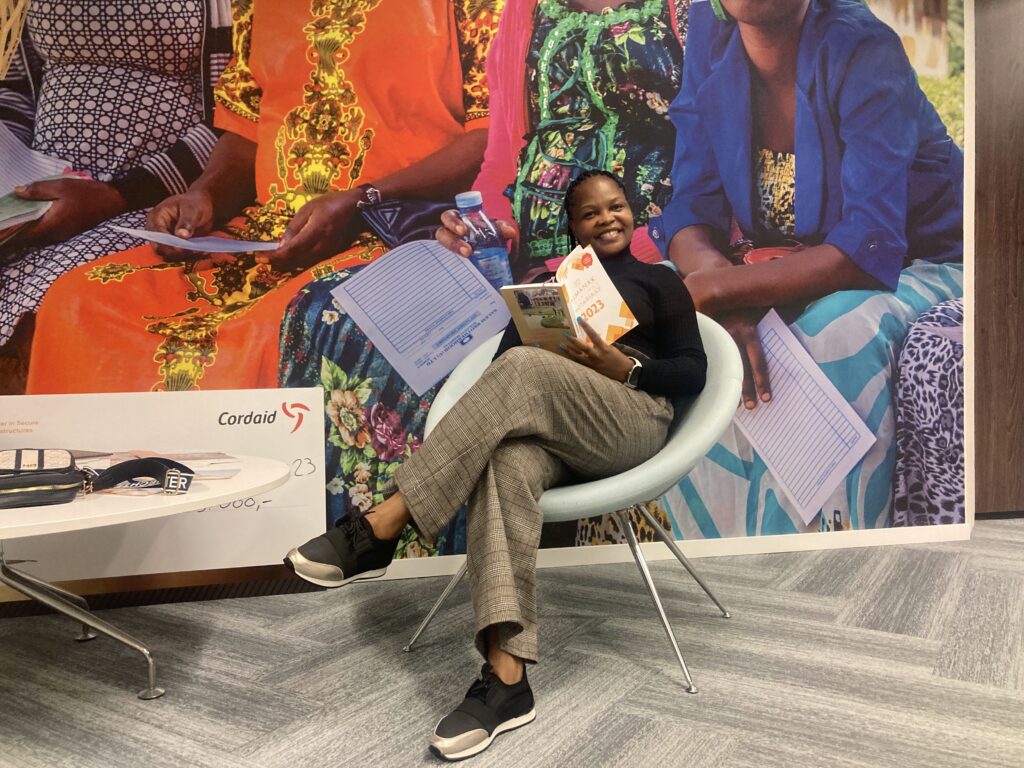Women Unlimited was born out of a deep-seated need to confront and dismantle the systemic barriers that prevent women in Eswatini from realising their full potential. The organisation believes in a holistic approach, empowering women to be aware of their rights, health, education, and financial independence.

Vimbai Kapurura, founder and executive director at Women Unlimited Eswatini, and programme manager Andrew Chapfika, discuss their partnership with the Rapid Response Window of the United Nations Women’s Peace Humanitarian Fund (WPHF) and Cordaid. They talk about the obstacles they faced and the progress they have made towards creating a more equitable society.
What drives your commitment to Women Unlimited and its mission?
Vimbai: ‘For me, it’s deeply personal. Growing up in a household where I was the only girl among many brothers and being raised by a single mother, I experienced firsthand the subtle inequalities and challenges that women face. It ignited my passion to change these norms.’
Andrew: ‘My journey into human rights work started with supporting young people to overcome substance abuse. This work shifted my focus towards broader societal issues, including family structures and gender roles. Witnessing the challenges faced by women in my community, from mothers to daughters, it became clear that advocacy for gender equality wasn’t just necessary; it was urgent.’
How did the partnership with the WPHF come about and what impact has it had?
Vimbai: ‘The advent of COVID-19, followed by political unrest in 2021, significantly heightened the vulnerabilities faced by women. Our partnership with the WPHF was crucial to ensure women are capacitated and given a voice in attempts at national dialogue for peace. Lately, there have been notable positive developments. More women enter decision-making positions, such as the Deputy Prime Minister and ministers in key departments. This progress is encouraging, yet there’s so much more to be done to ensure women’s rights are fully recognised and protected.’

What are the societal challenges faced by women in Eswatini?
Andrew: ‘Patriarchy is deeply entrenched in our society, operating under a dual legal system of Roman-Dutch law and Swazi customary law. This system often disadvantages women, especially regarding land inheritance and ownership. Another big issue is gender-based violence which is always exacerbated by societal crises.’
Vimbai: ‘We are the first organisation in the country to bring the UN Security Council Resolution 1325, which emphasises women’s roles in peace and security, into the national conversation. As a result, the Department of Gender and Family Issues committed to developing a National Action Plan on the resolution. This move means that the government has not only acknowledged but also assumed responsibility for addressing these critical issues.’
‘Women’s participation is crucial for uniting people, especially in the aftermath of violence or conflict.’
How did you manage to strengthen the women’s movement in Eswatini?
Andrew: ‘Initially, the women’s movement in Eswatini struggled with low engagement and a lack of a cohesive communication strategy. Many women didn’t want to join because they felt left out or didn’t know how to talk things out peacefully. We started by showing them that talking and negotiating works better than arguing. Before, traditional community structures often excluded women. We’ve taught women how to use their existing influence within traditional ‘female’ roles. Bringing women together made our movement stronger.’
Have you noticed any shifts in community attitudes toward women’s involvement in decision-making?
Vimbai: ‘We’ve observed a significant shift. One remarkable example comes from the Shiselweni Region, where a woman organised an advocacy event. They collaborated with a local church and NGOs, including our team, to facilitate this meeting. They managed to invite local chiefs and council members, addressing challenges that were previously difficult to approach directly. This event was an eye-opener for many community leaders: It was a moment of realisation that women’s participation is crucial for uniting people, especially in the aftermath of violence or conflict.’
How important is it to include men in these conversations and efforts towards gender equality and peacebuilding?
Vimbai: ‘It’s absolutely vital. Advocating for women’s rights and their participation in decision-making isn’t just about working with women; it involves engaging men in the dialogue too. Our approach at Women Unlimited has always been inclusive, aiming for a collective understanding and buy-in from both men and women. At the end of the day, if we empower girls while neglecting boys, we are going to end up with men who are not able to handle an empowered woman.’